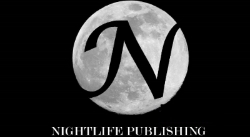The current strained relationship between police forces and some communities could be the result of military surplus weapons and training flowing from the War on Terror to local precincts (See Bill Maher: Police State).
It could be the result of the gradual expansion of police powers and a siege mentality in policing dating back to the American Revolution. (See Rise of the Warrior Cop).
Perhaps this occupying force mentality has always been present in our society and is only on the top of our minds now because the wider proliferation of personal video gives us weekly examples of minority and poor Americans being attacked and sometimes killed by police officers or even neighborhood watch members. (See NYC Official Wants Police to Wear Cameras After Chokehold Death).
It’s probably a combination of these factors and many others, but I think the most important thing to look at when thinking about or dealing with the police revolves around understanding their day to day motivation.
The articles I’ve seen about the killings in New York and Missouri frame the issue as racial, economic or social. (See FBI Steps In Amid Unrest After Police Kill Missouri Youth) I think all these things come into play, but why a person does what he does is based less on his socio-political position and more on his mental and emotional motivations. I’ve never been in the police department, but I don’t think it takes twenty years on the force to understand the things he care about:
A police officer wants to protect*:
- His life
- His partner’s life
- His family’s future
- His income
- His pension
- His career and/or promotion
- His reputation with other police
- His relationship to his superiors
- The relationship of his precinct to the others
- The relationship of his precinct to City Hall
- His relationship to the media and the court of public opinion
Please note: aiding the members of the community like you or me may or may not fit on this list. If it does, I doubt it will be higher than any of the things I’ve mentioned. I think this is accurate not because police are evil, but because police are human and every human in a society is motivated by self interest. If you or I decided to be a cop for whatever reason, this list would seem completely reasonable.
When you add the constant threat of sudden violence that comes with being a police officer, and increased access to military weapons and training to the list of motivations above, you create a situation where any actual or perceived threat to an officer or his motivations could result in a lethal force altercation.
To reiterate, I don’t believe all cops are evil. I don’t believe all cops are good. I believe all cops are human and are driven by what they perceive to be their best interests in stressful situations. Putting every police officer on camera for every civilian interaction can be effective because it impacts most of the officer’s motivations. But footage can be manipulated and evidence is not a guarantee of anyone being punished for a crime. Cameras treat the symptom, but they do not alter the underlying factors of behavior.
I’m not, nor do I plan to be engaged in any violent or criminal activity. Having said that, I limit my interactions with police to the same level as the characters in my writing. I avoid them when possible and do my best to avoid or disengage from any situation where police might become involved. If that isn’t possible I try to remove myself from the situation as soon as possible without making things worse (See 10 Rules for Dealing with Police)
Struggles between police and the people they protect is not a new phenomenon. In the first century AD, a Roman poet coined the phrase Quis custodiet ipsos custodes? or who watches the watchers? Through the magic of YouTube and Iphones we can all watch them, but until we can understand and change their motivations, is there anything we can do to stop them?
Have fun.
Gamal
*Yes, I realize there are female police officers. Yes, I made a specific choice to single out men. I’m sure you can figure out why.
